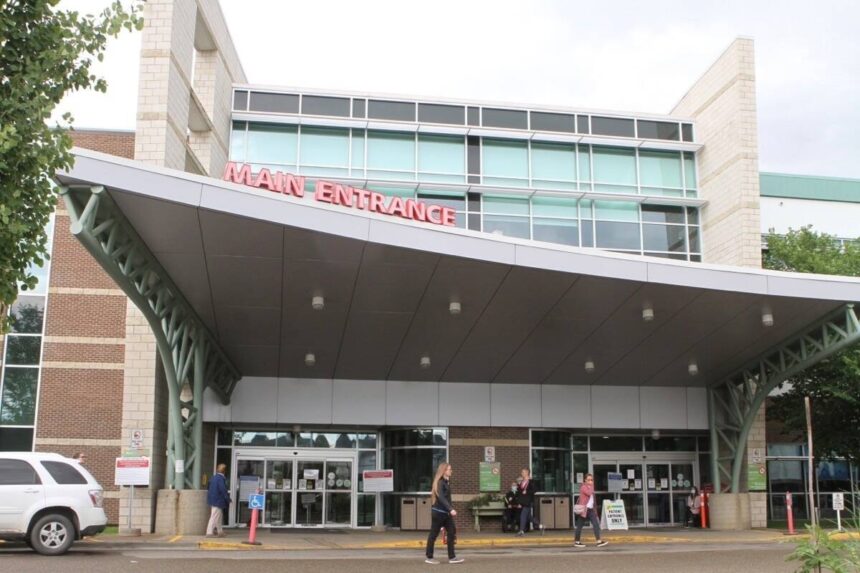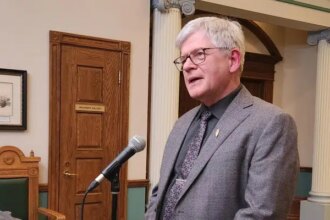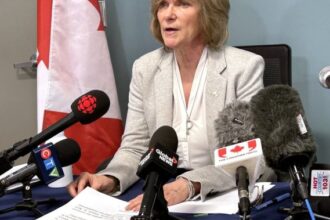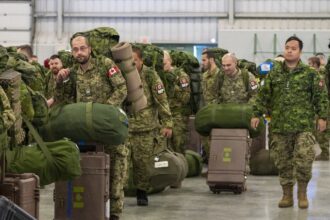As Edmonton doctors sound the alarm over emergency room backlogs, citizens in Red Deer are taking to the streets this week with two significant healthcare rallies planned amid mounting concerns about Alberta’s healthcare system. The demonstrations come at a critical moment when healthcare professionals across the province report unprecedented strain on medical resources and staffing.
The first rally, organized by the group Albertans for Healthcare, will gather at City Hall Park on Thursday at noon, focusing on what organizers describe as the “systematic dismantling” of public healthcare in the region. Rachel Powell, lead coordinator for the event, points to troubling statistics that have fueled public anxiety.
“When we see patient wait times at the Red Deer Regional Hospital increasing by 37% over the past year while staffing levels have decreased, we can’t remain silent,” Powell told me during our phone interview. “This isn’t just about numbers—it’s about real people facing delays in critical care.”
The demonstration comes after recent data from Alberta Health Services revealed that Red Deer’s emergency department has been operating at over 125% capacity for 18 of the past 24 months. Healthcare professionals have increasingly voiced concerns about their ability to provide adequate care under these conditions.
Dr. Michael Donovan, an emergency physician who plans to speak at Thursday’s rally, expressed his frustration with the current situation. “In my 15 years of practice, I’ve never witnessed such consistent overcrowding and resource shortages. We’re being asked to do more with less every day, and ultimately, it’s patients who suffer.”
The second rally, scheduled for Saturday morning at the Red Deer Regional Hospital, is being organized by Support Our Healthcare Workers, a grassroots coalition of patients, family members, and healthcare advocates. This demonstration will specifically address concerns about healthcare worker burnout and proposed changes to physician compensation models.
“We’ve lost eleven physicians from Red Deer to other provinces in the past eight months alone,” noted Jennifer Mackenzie, spokesperson for the coalition. “When doctors and nurses leave Alberta for better working conditions elsewhere, our communities lose decades of expertise and institutional knowledge that cannot be quickly replaced.”
The provincial government has defended its approach to healthcare management, with Alberta Health Minister stating earlier this week that “significant investments are being made to strengthen healthcare delivery across all regions.” However, critics point out that promised expansions to the Red Deer Regional Hospital have faced repeated delays despite the facility serving over 300,000 Central Albertans.
Local business leaders have also begun expressing concern about how healthcare challenges impact economic development. Chamber of Commerce President Samuel Wilson recently noted that “healthcare infrastructure and quality are critical factors when companies consider establishing operations in our region.”
What makes these rallies particularly noteworthy is the diversity of participants. Beyond the expected healthcare workers and union representatives, organizers report significant interest from seniors’ groups, parents of young children, and business owners—suggesting the healthcare issue has transcended traditional political divides.
As Central Albertans prepare to make their voices heard this week, the fundamental question remains: will these public demonstrations catalyze meaningful change in healthcare policy, or will they become another chapter in the ongoing struggle to balance fiscal restraint with the growing healthcare needs of an aging population?


















